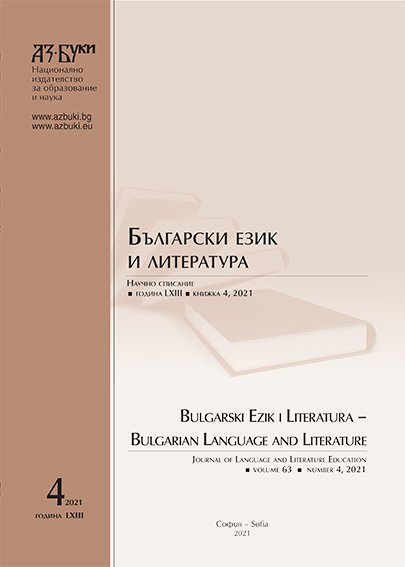Рефлексивно-дативни конструкции с оптативно значение в българския език
Reflexive-Dative Constructions with Optative Meaning in Bulgarian
Author(s): Galina PetrovaSubject(s): Social Sciences, Language studies, Language and Literature Studies, Education, Theoretical Linguistics, Morphology, Pragmatics, Eastern Slavic Languages, Vocational Education, Adult Education, Higher Education , State/Government and Education, Philology, Inclusive Education / Inclusion, Pedagogy
Published by: Национално издателство за образование и наука „Аз-буки“
Keywords: reflexive-dative constructions; optative meaning; Bulgarian
Summary/Abstract: This article analyzes and compares two types of Bulgarian reflexivedative constructions with optative meaning: bi-clausal (Иска ми се да танцувам ‘I wish to dance’) and monoclausal (Танцува ми се ‘I feel like dancing’). It presents the structural and semantic specificity of these constructions as well as the possibilities and constrains for their use. Both structures are distinguished by the presence of a verb in the third person, the reflexive particle се and an obligatory dative clitic expressing an experiencer argument. The bi-clausal constructions are viewed as resulting from optative diathesis: аз искам да ‘I want to’ → иска ми се да ‘I wish to’. The monoclausal constructions are viewed as resulting from a further transformation: Иска ми се да танцувам → Танцува ми се. The semantic specialization of the monoclausal constructions is to express a desire for something based on an internal need (primary or secondary). The dative argument is understood as a ‘feel like/experiencer’ subject of the denoted event.
Journal: Български език и литература
- Issue Year: 63/2021
- Issue No: 4
- Page Range: 359 - 369
- Page Count: 11
- Language: Bulgarian
- Content File-PDF

